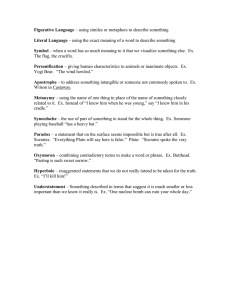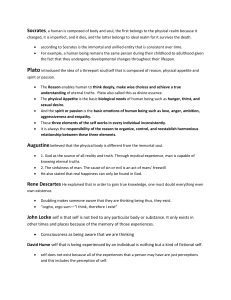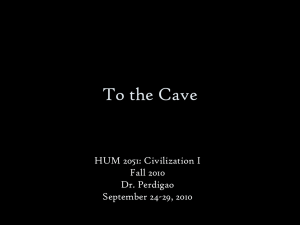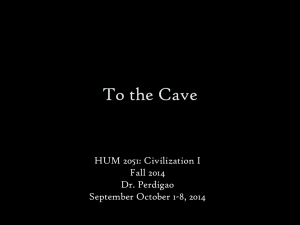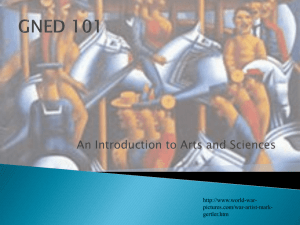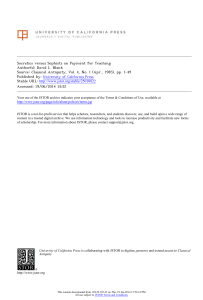TOK Notes 9/12/03 Autumn Browning * Sophists
advertisement
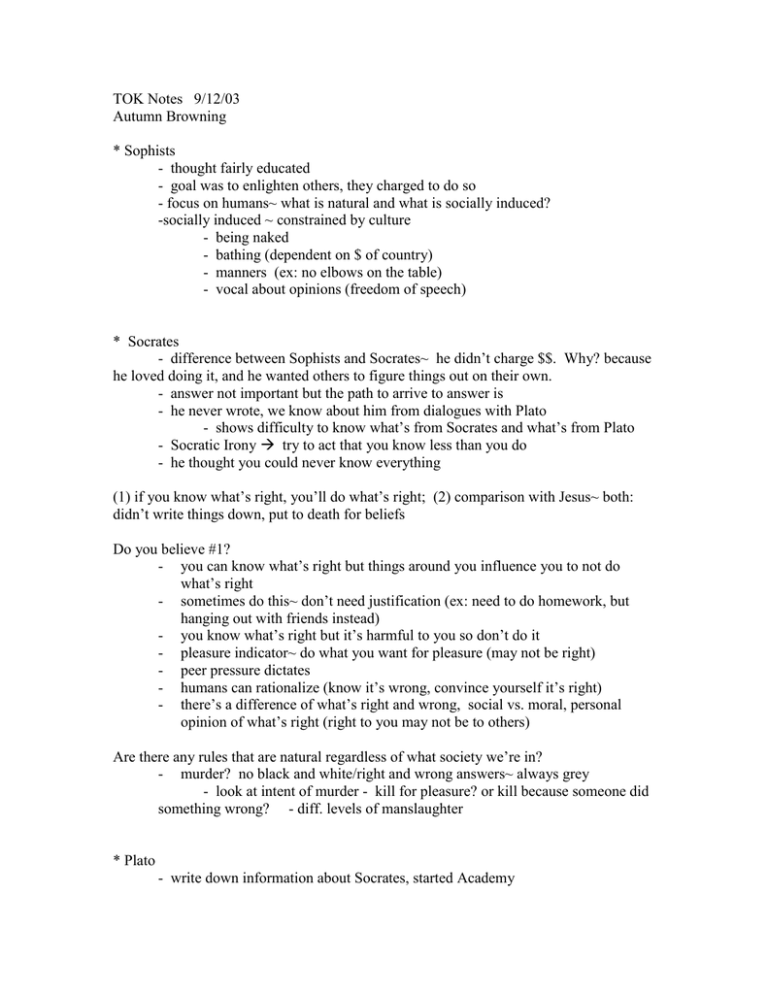
TOK Notes 9/12/03 Autumn Browning * Sophists - thought fairly educated - goal was to enlighten others, they charged to do so - focus on humans~ what is natural and what is socially induced? -socially induced ~ constrained by culture - being naked - bathing (dependent on $ of country) - manners (ex: no elbows on the table) - vocal about opinions (freedom of speech) * Socrates - difference between Sophists and Socrates~ he didn’t charge $$. Why? because he loved doing it, and he wanted others to figure things out on their own. - answer not important but the path to arrive to answer is - he never wrote, we know about him from dialogues with Plato - shows difficulty to know what’s from Socrates and what’s from Plato - Socratic Irony try to act that you know less than you do - he thought you could never know everything (1) if you know what’s right, you’ll do what’s right; (2) comparison with Jesus~ both: didn’t write things down, put to death for beliefs Do you believe #1? - you can know what’s right but things around you influence you to not do what’s right - sometimes do this~ don’t need justification (ex: need to do homework, but hanging out with friends instead) - you know what’s right but it’s harmful to you so don’t do it - pleasure indicator~ do what you want for pleasure (may not be right) - peer pressure dictates - humans can rationalize (know it’s wrong, convince yourself it’s right) - there’s a difference of what’s right and wrong, social vs. moral, personal opinion of what’s right (right to you may not be to others) Are there any rules that are natural regardless of what society we’re in? - murder? no black and white/right and wrong answers~ always grey - look at intent of murder - kill for pleasure? or kill because someone did something wrong? - diff. levels of manslaughter * Plato - write down information about Socrates, started Academy - major project what flows? Changes? Eternal? Immutable? - world of ideas ~ eternal - nothing we see is exact, always changing with senses - things that flow are in material world - goes against evolution in some way (horses not pre-made, they evolve) - he believed in small atoms combined in specific ways; modern science- DNA dictates (not everything is perfect) ~ that’s why there are differences, overall form of DNA - humans ~ dual creatures: body and soul, body- die and decompose, soul- eternal Why do we have a soul? - We have ideas of world, need something eternal Aristotle did not believe there was an idea of a horse before we had a horse. Instead, we keep seeing things that fit into categories. He was an empiricist (observation through senses)
